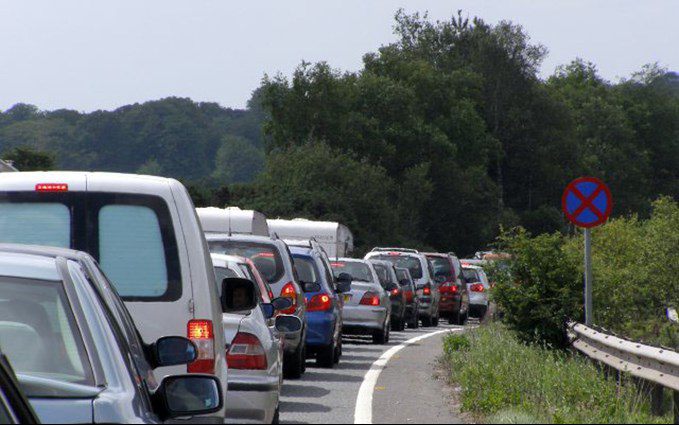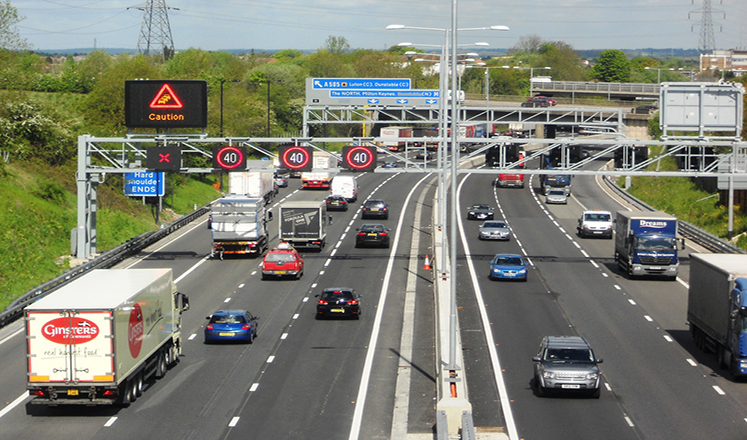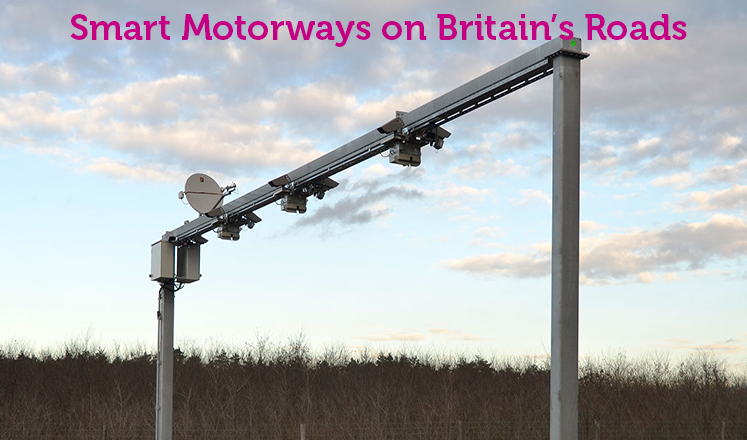You’ve heard of smartphones. What on earth is a smart motorway? These are motorways that manage the flow of traffic using technology controlled from a regional traffic control centre. Compared to traditional road widening schemes, Smart Motorways are more cost effective and minimizes environmental footprints These traffic control centres can monitor traffic and change the speed limits and signs based on the amount of traffic. It is operated by Highways England and the aim is to reduce congestion and enable the smooth flow of traffic. .They also reduce noise pollution, reduce accidents and improve journey times. On a Smart Motorway the hard shoulder could be used as an extra lane to increase capacity for heavy traffic. Smart Motorways uses a technique called Active Traffic Management or ATM for short. ATM has been implemented in countries such as the UK, US and Germany and is a way to smooth the traffic flow and increase the capacity on motorways. The first Smart Motorway implemented in the UK is on the M42 in the West Midlands in 2006. Eventually the scheme rolled out to various sections of other motorways including the M1, M5, M6, M20, M25, M40, M42 and M62 with multiple other motorways planned to become Smart Motorways.
Technology

Smart Motorways uses a technology called MIDAS which stands for Motorway Incident Detection and Automatic Signaling. It is basically a network of traffic sensors that alert the Traffic Control Centre on traffic flow data and if necessary change speed limits and open/close lanes. MIDAS recognizes two diferent traffic conditions, queuing Traffic or congestion. These sensors used to monitor traffic flows are placed on the road every 100 metres and refuge areas are created every 500 metres for emergencies. Smart Motorways could also use Digital Enforcement Cameras and Automatic Number Plate Recognition.
Is it effective?

The initial experiment by the Highways Agency (Now Highways England) showed a 27% reduction in journey times during the first 6 months and a fall in the number of accidents from over 5 a month to 1.5 per month on average although as the Highways agency have stated, accident statistics should be compared over a 3 year period. According to motoringresearch.com a network of motoring research freelancers, motorists have been fined with more than £500 million on roads with variable speed limits since 2013. Some motorists are simply not aware of the changes in speed limits on Smart Motorways. Some motorists claims the need to suddenly hit the brakes needed to adjust for the change in speed limit is dangerous and that they are being targeted by these variable speed cameras.
Have you driven on a smart motorway yet? Use our car search tool to find your perfect car to drive on a smart motorway. Get in touch with our expert Customer Advisors by completing our quick online application form, and they will be able to assist you on getting the perfect road trip ready car for you.





 Facebook
Facebook Twitter
Twitter Instagram
Instagram LinkedIn
LinkedIn Youtube
Youtube